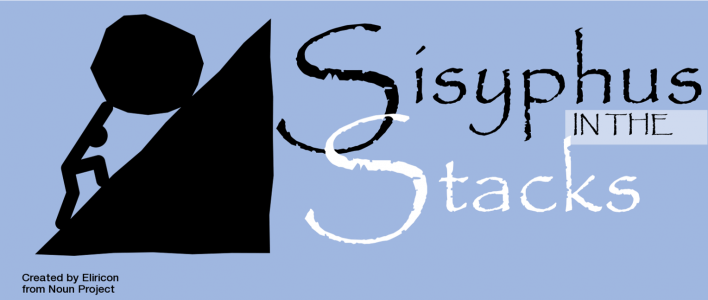The Seattle Public Library (SPL) closures announcement means branches are dark one day a week. But the decision has been shrouded in misinformation and a lack of transparency. While local media and politicians cite a staffing crisis that ostensibly began in 2008, the truth tells a different story. This decision comes from homeless addicts burdening the system.
(Jason Rantz, née Antebi, AM770 KTTH, April 14, 2024)
I came across this conservative screed when Googling libraries and mental health for an update on an old series. It’s a tired old pro-stigma piece that blames everything on mentally ill homeless drug addicts, because they’re an easy target, and because Mr. Antebi, who shrouds his ethnic origins in a facile nom-de-radio (who’s lacking transparency now?), is a bit lazy and likes low-hanging fruit.
But the truth, as Mr. Antebi likes to say, tells a different story.
The issues at hand are twofold: What is the purpose of libraries (i.e., should they do anything outside of connecting people with information)? And Whom should public libraries serve?
Plenty of librarians complain about “mission creep” with the introduction of social responsibility. But free public libraries have always been the great equalizer between the poor and the privileged. We not only provide the information, but the knowledge and wherewithal to use it. The only thing that has changed, aside from the exponential increase in information itself, is our understanding of what it takes to use that information.
Our library staff makes connections to all kinds of information for all kinds of people in all kinds of life situations. The library is the biggest referral agency in the city, so connecting people to community resources is absolutely in our wheelhouse. … [Staff] connect people to information, resources, and to each other–a vital service for our residents. The team is guided by trauma-informed care principles and the idea that you can’t enjoy full access to library services if your basic needs are not met.
(Tom Fay, Executive Director and Chief Librarian of The Seattle Public Library, “Mental Health and the Role of Libraries,” May 13, 2024)
As for the whom, public libraries are for everyone, including unhoused drug addicts with mental illness.
According to Kreimer v. Bureau of Police for Morristown (Court of Appeals, 3rd Circuit), the First Amendment includes a right to public library use. This right is not absolute, but it is worthy of consideration, and any restrictions on this right must be constructed to protect the rights of others to enjoy and use the public library. Basically, all categories of people must be allowed to use the library, but truly disruptive behavior may lead to disruption in library use.
Especially but not solely in urban libraries, the service population is going to include folks struggling with mental illness and homelessness. The Mad and the unhoused, two marginalized groups further from mainstream acceptance than pretty much any other. Biases against them are arguably more common than those against, say, the LGBTQIA+ community. Furthermore, there is less stigma associated with those biases. Homophobes and transphobes may be characterized as “ignorant” by well-intentioned mainstream liberals, but those same liberals will often give you a pass if you pass judgment on the untreated schizophrenic ranting at their hallucination or the smelly bum with all their possessions in an inconveniently placed shopping cart. And don’t get me started on addicts, always overdosing in the bathrooms at the worst of times.
And yet, these categories of people, too, have a right to public library access. That means they are to be more than tolerated, even welcomed, made to feel a part of the community. Barriers to their use and enjoyment of the library must be, so far as is practical, dismantled.
Those barriers include attitudes like Mr. Antebi’s, recategorizing the unhoused, the addicted, the mentally different from humans with rights to disposable burdens. This attitude is common. I have found versions of it in my library staff. The community, they say, does not believe in asking for help for mental and emotional struggles. We can’t counter that belief, so no Mental Health First Aid, no May is Mental Health Awareness Month. Patrons who act strange, a little impulsive and loud, maybe, are objects of fear and judgment. These instances show the harmful effects of external and internalized bias and stigma. (But don’t suggest they examine that bias or how it affects their service.)
Library professionals interact every day with patrons externally demonstrating symptoms of mental illness. There is compassion. There are attempts to connect patrons to resources. And there is sometimes also stigma and bias, even when there are good intentions. I define stigma and bias as these negative perceptions we may hold, without even realizing we hold them.
(Morgan Rondinelli, “What’s Missing in Conversations About Libraries and Mental Illness,” June 19, 2024)
The unhoused, the Mad, the addicted represent perhaps the last places for “normal” people to locate their revulsion and hate, with no fear that they might be intolerant. After all, there is “something wrong with those people!”
What I am suggesting is that we each, as human beings, should examine our own reactions and beliefs for barriers to connecting with others. But first, we must claim responsibility for those reactions and beliefs. I am not afraid because Johnny is unstable: rather, Johnny’s instability touches something in me that needs to be addressed. It is a fundamental question of what is within my power: someone else’s instability or my response to it? Go there, figure it out, and return a better library practitioner.
To provide library service to the public is a sacred duty. Define boundaries, yes; post that Patron Behavior Policy and enforce it evenly and with compassion. Guard your safety, but examine your knee-jerk reactions: Is it really safety you’re guarding? Understand that everyone who comes through those doors is your responsibility, to serve without judgment, to dissolve the barriers between them and the information they want and need.
